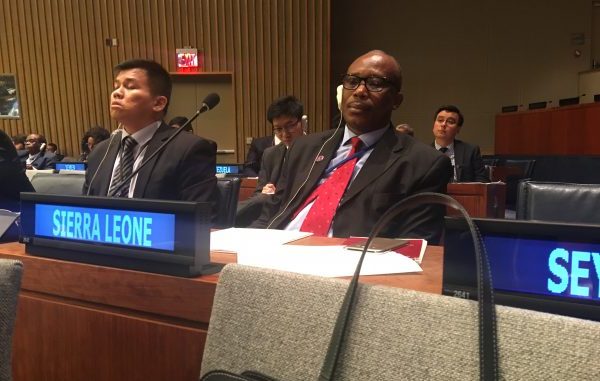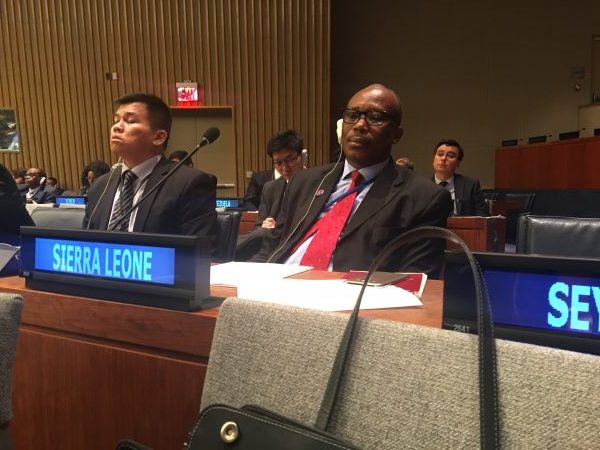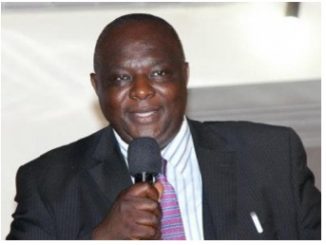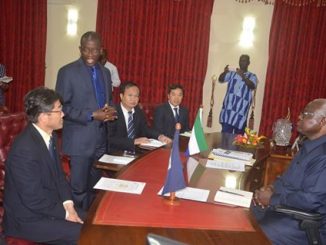
By KABS KANU :
The Permanent Representative of Sierra Leone to the United Nations, Ambassador Adikalie Foday Sumah , has restated Africa’s position in the ongoing negotiations for the reform of the United Nations Security Council.
Delivering a statement on behalf of the continent as Coordinator of the African Group in the reform process during the informal meeting of the General Assembly on the intergovernmental negotiations on the question of equitable representation on and increase in the membership of the Security Council and Related matters, Ambassador Sumah said that Africa’s position on the reform was well known but for the benefit of the two co-chairs of this session and the ease of reference, he decided to restate the continent’s position on the three clusters considered at the session : Regional Representation, Categories of membership and question of the Veto.
Ambassador Sumah said that on the question of Regional Representation, Africa believes in a reform that will ensure her legitimate right to fair and equitable geographical representation in the Security Council , taking into account the principles, objectives and ideals of the UN Charter for a fairer world, based on universalism, equity and regional balance within the UN System.
On Categories of Membership, Ambassador Sumah restated Africa’s position, which favors an expansion in both the Permanent and Non-Permanent Categories of the Security Council; an allocation of no less than two permanent seats to Africa with all the rights and prerogatives of permanent membership and a total of five non-permanent seats , with the selection of all such representatives to be done by the African Union for submission to the General Assembly for election.
With respect to the Veto, Ambassador Sumah restated the fact that Africa strongly supports its abolition but as long as it exists it must be extended to all new members of the Permanent Category, who must enjoy all the rights and prerogatives of permanent membership, including use of the Veto, as a matter of common justice.
Ambassador Sumah made a very strong point that the rationale for African permanent membership at the Security Council rests on the facts that Africa is the single largest regional group with 54 countries and with three-quarters of the agenda of the Security Council being African issues, with the continent also playing a significant role in the maintenance of international peace and security , both on the continent and elsewhere.
Another very salient and crucial point made by the Ambassador was that the historical injustice which sees Africa, the single largest regional group not represented in the Permanent Category did not commence and rest on the continent’s conspicuous marginalization from the Permanent Category of the UN Security Council . He emphasized that the historical injustice to Africa started before 1945 when the UN was founded.
Ambassador Sumah stated that the 1884 Berlin Conference , which culminated in the scramble for and partition of Africa, comprehensively marginalized the people of Africa, whose territories , for all intents and purposes, were the subject of partition between the scrambling , competing hegemonies.
Ambassador Sumah made a compelling historical analysis of the genesis of the injustice to Africa : “The League of Nations, a precursor to the United Nations, perpetrated an historical injustice to Africa and other parts of the World under colonial rule. Despite the fact that, the population of the colonial peoples constituted half of the world population at the time of its establishment, the League of Nations marginalized that population from its global governance and in the maintenance of international peace and security. It is interesting to note, the act amounted to a contributory factor to the failures of the League of Nations. ”
In this regard, Ambassador Sumah told the Co-Chairs of the intergovernmental negotiations, “Your role as Co-Chairs is to propel the process in an impartial manner to any of the positions, while at the same time ensuring progress towards early reform of the Security Council. We therefore urge that any working paper to be crafted out of this session as a basis for further negotiations must include, among other things, not only the elements of the African position listed above on the three clusters in question, but also elements of the said position in the other two clusters dealt with in the 70th Session.”
Ambassador Sumah reiterated Africa’s persistent demand that the comprehensive reform of the Security Council was imperative to address the historical injustice that leaves Africa as the only region not represented in the Permanent Category and under-represented in the Non-Permanent Category of the Security Council.
“The African model of reform” , the Ambassador strongly articulated, “is based upon acknowledging and correcting the historical injustice suffered by the African continent and seeks to create North-South unity. It also seeks to include smaller countries in the South, and especially in Africa, so that they can contribute effectively to policy formulation and implementation at the global level.”
Continuing to elucidate the merits of the African model of reform, Ambassador Sumah postulated that : “It is important to note that, a greater majority of Member States including all the P5 countries want an expansion in both categories of seats in the Security Council. A great majority of Member States of the United Nations, if not all, seek greater geographical and regional balance in the organization. This clearly indicates that there is consensus to move in a certain direction, which by all indications finds common ground with the Common African Position as articulated under the Ezulwini consensus and the Sirte Declaration.”
I WILL PROVIDE A ANALYTICAL PERSPECTIVE OF THE HIGH POINTS OF AMBASSADOR SUMAH’S STATEMENT, ESPECIALLY ON THE HISTORICAL INJUSTICE TO AFRICA , IN SUBSEQUENT ARTICLES.




